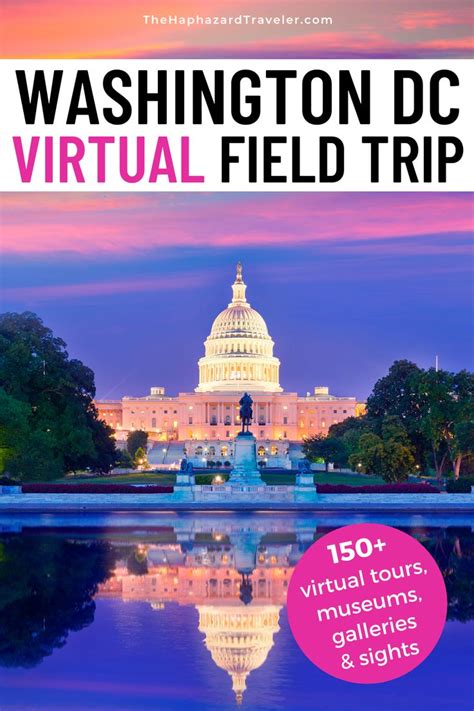Washington D.C. Field Trip: Save Money, Learn More
Washington, D.C., a city brimming with history, culture, and iconic landmarks, is a dream destination for any field trip. But planning a trip to our nation's capital can feel daunting, especially when budgeting is a major concern. This guide will help you plan a memorable and educational Washington D.C. field trip while keeping costs down and maximizing learning opportunities.
Planning Your D.C. Field Trip Budget: Where to Save
Budgeting is crucial for a successful field trip. Here’s how to stretch your dollars:
-
Transportation: Consider the most cost-effective transportation options. Chartering a bus can be surprisingly affordable, especially when splitting the cost among many students. If your school is located relatively close, carpooling with parent volunteers could significantly reduce transportation expenses. Explore public transportation options within D.C. – the Metro system is efficient and can save you money on taxis or ride-sharing services.
-
Accommodation: If an overnight stay is necessary, explore affordable options like hostels (suitable for older students), group lodging at YMCA facilities, or even finding affordable hotels outside the immediate downtown area and utilizing public transportation to reach attractions.
-
Food: Packing lunches and snacks is a significant money-saver. Avoid expensive tourist traps by planning meals ahead of time. Many parks offer picnic areas, providing a pleasant and cost-effective dining experience.
-
Admission Fees: Many museums and monuments in D.C. offer free admission, which is a huge advantage. Research which attractions are free and prioritize those in your itinerary. For paid attractions, look for group discounts or consider purchasing tickets in advance online, which sometimes offers better rates.
-
Souvenirs: Set a reasonable souvenir budget per student. Encourage students to create mementos of their trip using materials they collect or create artwork depicting their experiences, rather than purchasing expensive souvenirs.
Maximizing Learning on Your D.C. Field Trip: Educational Experiences
Beyond the iconic monuments, Washington D.C. offers a wealth of educational opportunities. Let's explore some avenues to maximize learning:
-
Pre-Trip Activities: Prepare students for the trip by engaging them in related classroom activities. Researching historical figures, government processes, or architectural styles relevant to the monuments and museums you'll visit will enhance their understanding and appreciation during the trip.
-
Structured Itinerary: Create a detailed itinerary with specific learning objectives for each site. This allows students to focus on key information and encourages thoughtful observation. Consider incorporating interactive activities or quizzes at each location to assess understanding.
-
Museum Exploration: The Smithsonian museums offer incredible educational resources. Focus your visits on specific museums relevant to your curriculum. For instance, the National Air and Space Museum is ideal for science classes, while the National Museum of American History caters to history and social studies.
-
Monumental Learning: Walking tours focused on specific monuments can provide historical context and deeper meaning. Encourage students to engage actively by asking questions and participating in discussions.
-
Post-Trip Reflection: Engage students in post-trip activities like writing reflections, creating presentations, or designing projects based on what they learned. This solidifies their understanding and makes the field trip a more impactful learning experience.
Frequently Asked Questions (FAQs)
What are the best free attractions in Washington D.C.?
Many of D.C.'s most iconic sites are free! The National Mall, the Lincoln Memorial, the Washington Monument (though reservations are recommended), the World War II Memorial, and most Smithsonian museums are all free to enter.
How can I secure group discounts for paid attractions?
Contact the attractions directly to inquire about group discounts. Many museums and other paid sites offer reduced admission fees for school groups. Booking in advance is often essential to securing these discounts.
What is the best time of year to visit Washington D.C. for a field trip?
Spring and fall offer pleasant weather, avoiding the extreme heat of summer and the cold of winter. However, these seasons can also be peak tourist times, so booking well in advance is vital.
How can I ensure student safety during the field trip?
Thorough planning is key to student safety. Develop a detailed safety plan that includes emergency contact information, designated meeting points, and procedures for handling unexpected situations. Ensure adult supervision at all times and provide clear instructions to students regarding appropriate behavior and safety guidelines.
How can I make the trip engaging for all learning styles?
Incorporate a variety of learning activities to cater to different learning styles. Include hands-on activities, visual aids, discussions, and interactive elements to keep students engaged and ensure everyone benefits from the trip.
By carefully planning and prioritizing both budget management and educational enrichment, your Washington D.C. field trip can be a truly impactful and memorable experience for your students. Remember to document the trip through photos and videos to create a lasting record of this enriching journey.

